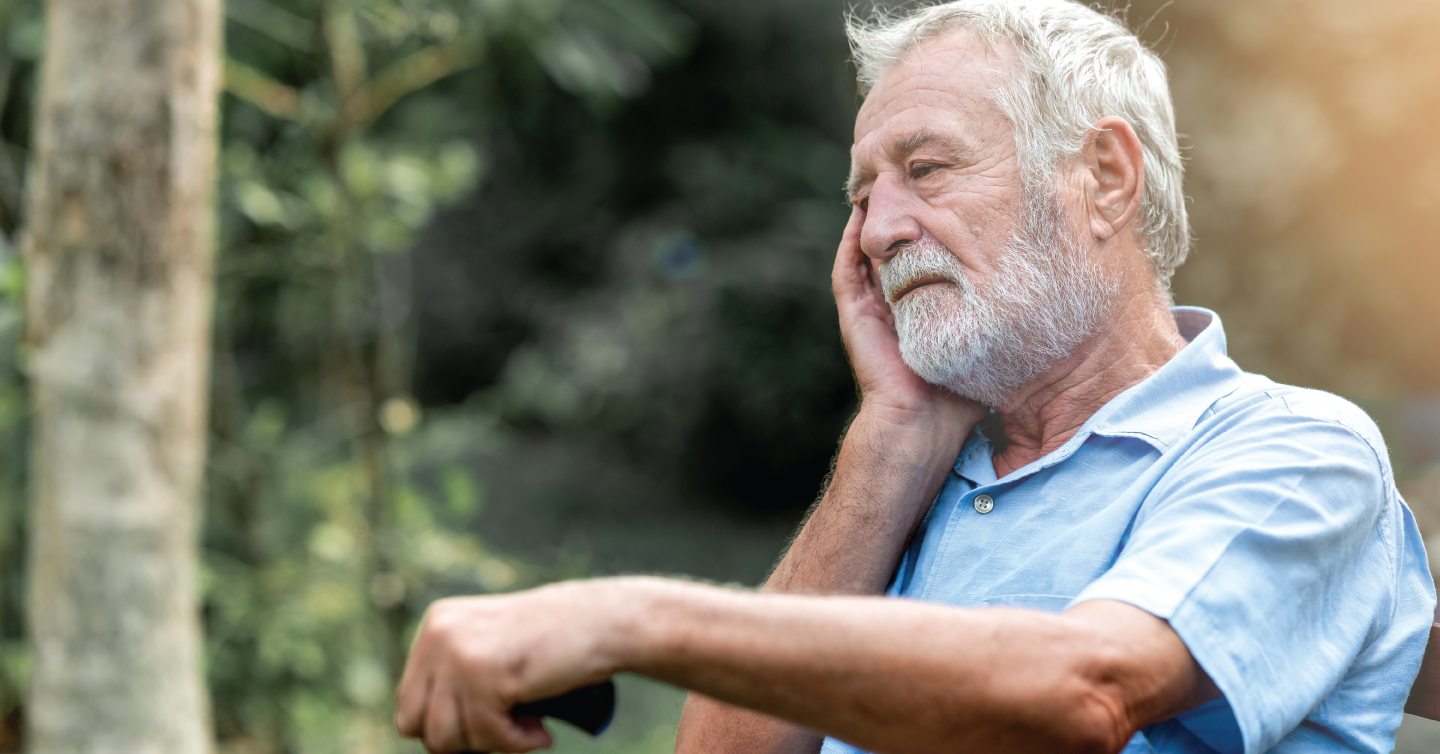How Vision, Hearing and Touch Affect Your Risk of Falling (and What to Do About It)

By Heidi G., quality care coordinator at Network Health
05/29/2025
As we age, staying on our feet becomes both more important and more challenging. Every year, one in four adults over age 65 falls, and the consequences can be serious. But here’s something you might not realize: your senses play a huge role in fall prevention.
Your risk of falling rises if you have impaired vision, hearing loss or trouble feeling your feet. That’s the bad news, but there is good news too. You can maintain your balance and safety by following a few easy steps. Let's take a look.
Why Your Senses Matter for Balance and Stability
Your senses can be compared to an internal GPS. They assist you in identifying your location within your immediate environment and reacting promptly to any dangers. This can include uneven pavement, wet floors or crowded hallways.
Your body must work more to stay upright when your eyesight, hearing, or touch change, which can commonly happen as you age. Trips, slips and falls may result from that and can cause more severe injuries.
[Read more: Changing Your Lifestyle Can Change Your Risk of Falls]
Vision Problems Can Lead to Falls
Your eyes are your first defense against falling. They help you see obstacles, judge distance and navigate your area safely. Unfortunately, many adults experience age-related eye conditions that interfere with that ability.
Common vision issues linked to falls
- Cataracts – Cause blurred vision and light sensitivity.
- Glaucoma – Affects peripheral vision, so you might not see hazards coming.
- Macular degeneration – Reduces central vision, making it harder to see clearly.
If you combine those vision issues with things like dim lighting, glare from shiny floors or poor contrast (like dark stairs on a dark floor), it can be a recipe for trouble.
How to protect your vision
- Get regular eye exams at least once a year.
- Use brighter light bulbs in dark areas like hallways or stairs.
- Add nightlights in bedrooms and bathrooms.
- Declutter your floors to create clear walking paths.
Hearing Loss Affects Balance Too
It might surprise you, but hearing is directly linked to balance. That’s because your ears help you detect movement and orientation in the space you’re in. When hearing fades, your spatial awareness can take a hit.
What causes hearing loss?
- Natural aging
- Repeated ear infections
- Exposure to loud noises over time
When you can't hear your surroundings clearly, it’s harder to stay alert and stable.
Hearing safety tips
- Get your hearing examined on a regular basis.
- Take care of and wear your hearing aids. As needed, clean and charge them.
- To improve your ability to concentrate when walking, turn down the background noise at home.
- When walking, refrain from multitasking by not looking at the path or sending texts, for example.
Loss of Touch Can Throw Off Your Balance
When you take a step, your feet send signals to your brain with information about the path you’re on, telling you if the ground is smooth, slanted or unstable. But if you have a condition like neuropathy, you may lose some of that feeling. That means your brain gets delayed or incorrect information, causing your risk of falling to rise.
Common causes of reduced sensation
- Diabetes
- Nerve damage
- Circulation issues
Boost your sensory feedback
- Wear good-fitting shoes with adequate grip and arch support.
- Avoid going barefoot, especially on slick or uneven surfaces.
- Consider using a cane or walker for extra support.
- Talk to your doctor about foot exams if you have diabetes.
How to Reduce Fall Risk by Supporting Your Senses
Thankfully, making even small changes can make a big difference. Whether you’re caring for yourself or a loved one, here are some simple fall prevention strategies that start with your senses.
- Stay active – Exercises like tai chi or walking improve coordination.
- Schedule checkups – Stay on top of regular vision, hearing and sensory screenings.
- Make your home safer – Install grab bars, use non-slip mats and tidy up cords.
- Don’t rush – Move mindfully and intentionally, especially when getting up or turning corners.
- Ask for help – Never be afraid to ask for help from family, friends or neighbors. Your safety is what’s most important.
Your senses help you enjoy the world while staying upright and independent so you can enjoy it more. Vision, hearing and touch all play important roles in preventing falls. Being proactive and making even a few small changes can help you feel more confident and stay safer.
At Network Health, we like to support your whole health, and that includes all the senses that keep you balanced. Do you have questions about your health plan? Call the number on the back of your member ID card so we can help.



